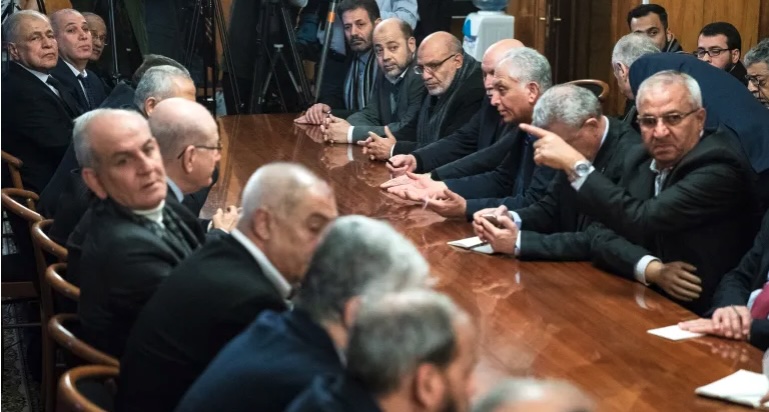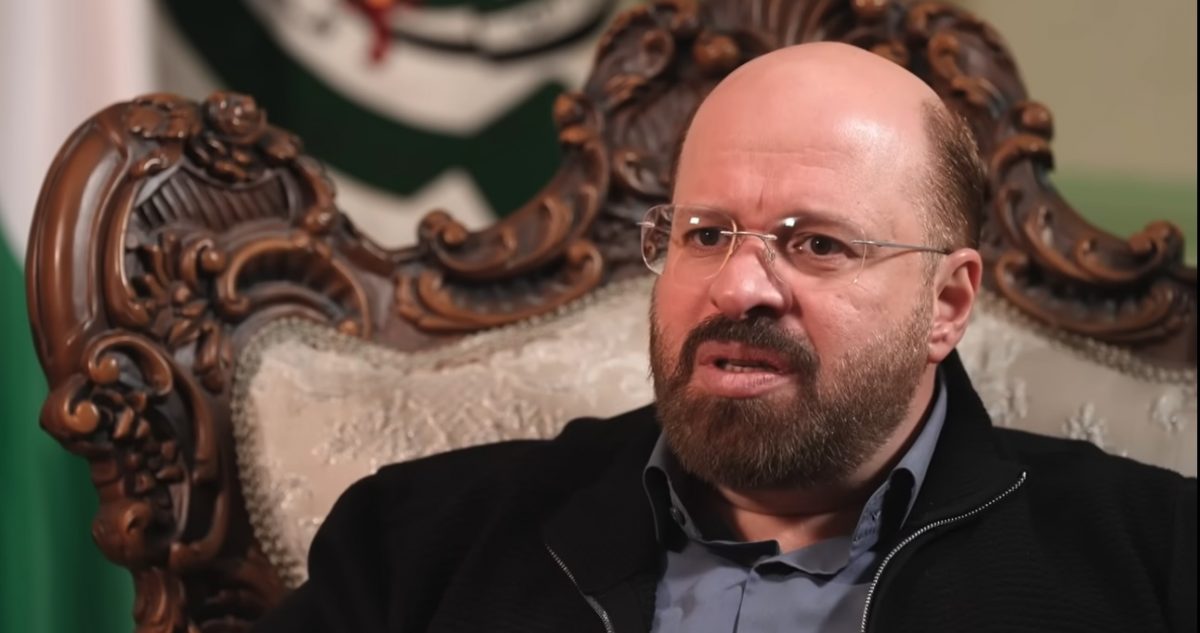The above image shows leaders of Hamas and Fateh sitting together in Moscow in late February to await a meeting with Foreign Minister Lavrov
Over the decades, the Palestinian Hamas movement has often been demonized in Western public discourse, but never so thoroughly and virulently as has happened since October 7. This demonization, as exemplified in repeated demands that everyone “condemn Hamas” or in depictions of the movement as constituting “pure evil”, has had real and very damaging consequences. For example, the U.S. ambassador to the United Nations three times cast a veto at the Security Council to block resolutions calling for a ceasefire in Gaza, attributing that veto mainly to the failure of the resolution in question to include an explicit condemnation of Hamas.
Those vetoes all considerably prolonged the suffering of Gaza’s 2.3 million people.
Israel’s leaders have led the chorus of voices demanding that everyone condemn Hamas. From October 7 on, those leaders widely touted accounts of the rights violations that, they claimed, Hamas and allied groups had committed inside Israel that day, and used those accounts to argue that Hamas is “just like ISIS.” (It is not.) Then, after media outlets in Israel itself had debunked some of the more lurid and disturbing descriptions of the violations of October 7, PM Netanyahu and his ministers still continued to anathematize the movement and to argue that that they needed to continue their devastating military offensive in Gaza until they completely “destroy” it.
But even while Israeli and U.S. leaders continued in every public forum to push their hard-hitting campaign to excoriate and exclude Hamas, at the same time behind closed doors in Cairo, Doha, or Paris they have often been working hard to pursue the indirect negotiations with the Hamas leaders that they know are needed if the Israeli hostages are ever to be released. What hypocrites. And during the seven-day pause in fighting that Israel and the United States negotiated with Hamas last November, Hamas delivered on its promises. (There are contending accounts of which side was responsible for the ending of that pause. But its first 6.5 days passed according to the negotiated plan and saw the release of 105 Israeli hostages.)
Also, lest we forget, after the UN Security Council finally on March 25 adopted a ceasefire resolution that demanded an immediate ceasefire for the month of Ramadan and the immediate and unconditional release of all hostages, Hamas speedily expressed it support for the resolution, while the government of Israel rejected it.
The tough campaign that Israel’s leaders and their backers worldwide have pursued to demonize and exclude Hamas as much as possible is nothing new. When I grew up in England in the 1950s and 1960s, British and other Western leaders leaders kept up a chorus of condemnation of the “primitive violence” of anti-colonial movements like that of the Mau Mau in Kenya or the FLN in Algeria. A little later, American leaders were using the same kinds of demonizing tropes to belittle and anathematize the forces that resisted the large-scale colonial-style violence that Washington deployed in Vietnam.
Continue reading “It’s past time to end the demonization of Hamas”

